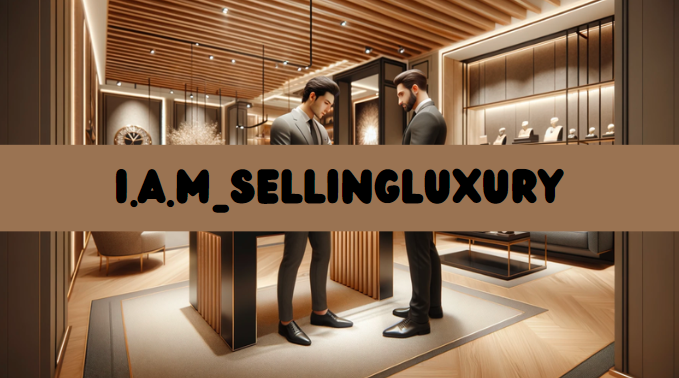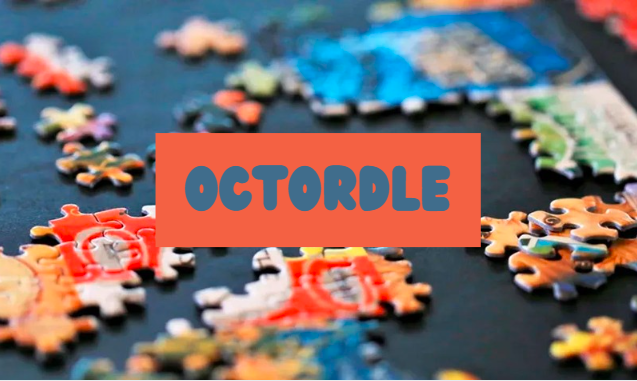The Ultimate Guide to “i.a.m_sellingluxury”: A Deep Dive into the Art and Strategy of Selling Luxury in the Digital Age
Welcome to the world of “i.a.m_sellingluxury”! In today’s digital age, selling luxury items is more than just a transaction; it’s a unique mix of art and strategy that requires finesse, understanding, and an impeccable sense of style.
Whether you’re a seasoned luxury retailer or someone new to the game, understanding the intricacies of this niche market is essential for success. This article provides a comprehensive and insightful guide that goes beyond the basics, offering deep analyses and actionable strategies to help you excel in selling luxury goods online.
What is “i.a.m_sellingluxury”?
Overview and Origins
“i.a.m_sellingluxury” is not just a brand; it’s a movement that encapsulates the art of selling luxury items in a digital landscape.
As more consumers shift towards online shopping, the luxury market has had to adapt, embracing new strategies and technologies to maintain its exclusivity and appeal.
The phrase “i.a.m_sellingluxury” symbolizes a commitment to delivering high-end experiences, whether through fashion, accessories, real estate, or other luxury goods.
The Evolution of Luxury Sales Online
Historically, luxury sales were confined to exclusive boutiques and private showrooms. However, the digital revolution has changed the landscape dramatically.
Online platforms now offer unprecedented access to luxury goods, broadening the market while challenging sellers to maintain the personal touch and exclusivity that luxury buyers expect.
The transition to online sales has required luxury brands to rethink their strategies, focusing on creating a seamless and luxurious online shopping experience.
The Psychology of Luxury: Understanding Your Audience
Who Buys Luxury?
Understanding the psychology of luxury buyers is crucial for anyone involved in “i.a.m_sellingluxury.” The typical luxury consumer is not just purchasing a product; they are buying into a lifestyle, a status symbol, and a sense of exclusivity.
These buyers are often high-net-worth individuals (HNWIs), but the demographic is expanding to include younger, affluent consumers who are motivated by different factors, such as social media influence and the desire for unique, personalized products.
The Emotional Appeal of Luxury Goods
Luxury items often evoke strong emotional responses. They are seen as symbols of success, power, and refinement. For many buyers, luxury purchases are not just about owning a high-quality product but also about the experience and status that come with it. This emotional connection is why storytelling and brand narrative are so important in luxury marketing.
How to Appeal to High-Net-Worth Individuals (HNWIs)
HNWIs are discerning consumers who value exclusivity, quality, and personalized service. When targeting this demographic, it’s important to focus on building trust and delivering exceptional customer service.
They expect more than just a product; they want an experience that reflects their status and sophistication. This can be achieved through personalized communications, bespoke products, and VIP services.
Building the “i.a.m_sellingluxury” Brand
Defining Your Unique Selling Proposition (USP)
In the competitive world of luxury sales, having a clear and compelling USP is essential. Your USP should highlight what makes your brand unique, whether it’s the quality of your products, the exclusivity of your offerings, or the exceptional service you provide. A strong USP will help you stand out in a crowded market and attract the right audience.
Crafting a Luxurious Brand Image
Your brand image is the first impression that potential customers will have of your business. In the luxury market, this image needs to exude sophistication, exclusivity, and elegance. This can be achieved through high-quality visuals, a cohesive color scheme, and a tone of voice that resonates with your target audience. Every touchpoint, from your website to your social media profiles, should reflect this luxurious image.
Social Media Strategy for Luxury Brands
Social media is a powerful tool for reaching luxury consumers, but it requires a different approach than mass-market brands. Focus on platforms like Instagram and Pinterest, which are visually driven and allow you to showcase the beauty and craftsmanship of your products. Collaborate with influencers who align with your brand values and can authentically promote your products to their followers.
The Art of Storytelling in Luxury Sales
Why Storytelling Matters
In the world of luxury, storytelling is more than just a marketing tactic; it’s a way to create an emotional connection with your audience. Luxury buyers are not just interested in the product itself; they want to know the story behind it.
Whether it’s the heritage of your brand, the craftsmanship that goes into each item, or the inspiration behind a particular collection, storytelling can help you build a deeper connection with your customers.
Examples of Effective Storytelling in Luxury Marketing
Many luxury brands have mastered the art of storytelling. For example, Louis Vuitton often highlights its rich history and tradition of craftsmanship in its marketing campaigns. Similarly, Rolex emphasizes the precision and dedication that goes into creating each watch, positioning it as a symbol of achievement and status. These stories resonate with consumers and reinforce the brand’s luxury image.
How to Create Compelling Narratives for Your Products
To create compelling narratives, start by identifying the unique aspects of your products. This could be the materials used, the craftsmanship involved, or the inspiration behind the design. Then, craft a story that highlights these elements and connects with your audience on an emotional level. Use high-quality visuals and evocative language to bring your story to life.
Digital Marketing Strategies for “i.a.m_sellingluxury”
Search Engine Optimization (SEO) Best Practices
SEO is crucial for driving traffic to your website and increasing your online visibility. For “i.a.m_sellingluxury,” focus on optimizing your website for relevant keywords, including “i.a.m_sellingluxury,” “luxury goods,” and “high-end fashion.”
Ensure that your website is mobile-friendly, has fast loading times, and provides a seamless user experience. Additionally, create high-quality, keyword-rich content that provides value to your audience and establishes your brand as an authority in the luxury market.
Pay-Per-Click (PPC) Advertising
PPC advertising can be an effective way to reach luxury consumers who are actively searching for high-end products. Use targeted ads on platforms like Google and Bing, focusing on keywords that are relevant to your products and audience. Create visually appealing ads that reflect the luxury nature of your brand, and use compelling copy to entice clicks.
Influencer Marketing in the Luxury Space
Influencer marketing is particularly effective in the luxury space, as it allows you to reach a targeted audience through trusted voices. Partner with influencers who have a strong following among luxury consumers and whose personal brand aligns with your own. Ensure that the collaboration feels authentic, as luxury consumers are often skeptical of overly promotional content.
Selling Luxury on Various Platforms
Instagram and the Visual Appeal of Luxury
Instagram is a key platform for luxury brands, as it allows you to showcase your products in a visually appealing way. Use high-quality images and videos to highlight the craftsmanship and beauty of your products. Consider using Instagram Shopping to make it easy for users to purchase directly from your posts. Additionally, leverage Instagram Stories and Reels to engage with your audience and provide behind-the-scenes looks at your brand.
The Role of E-commerce Platforms like Shopify
E-commerce platforms like Shopify have made it easier than ever to sell luxury goods online. These platforms offer customizable templates that allow you to create a sophisticated and user-friendly website. Shopify also provides a range of tools for managing inventory, processing payments, and analyzing sales data, making it a great option for luxury brands looking to establish an online presence.
The Growing Importance of Mobile Commerce
As more consumers turn to their smartphones for online shopping, having a mobile-friendly website is essential. Ensure that your website is optimized for mobile devices, with fast loading times, easy navigation, and a seamless checkout process. Consider developing a mobile app that offers exclusive features and a personalized shopping experience for your customers.
The Importance of Customer Experience in Luxury Sales
Creating an Exceptional Online Shopping Experience
In the luxury market, the shopping experience is just as important as the product itself. To create an exceptional online shopping experience, focus on delivering a seamless and enjoyable journey from start to finish. This includes everything from intuitive website navigation to fast and secure checkout processes. Consider offering features like virtual consultations, live chat support, and personalized product recommendations to enhance the customer experience.
Personalized Services and Clienteling
Personalized service is a hallmark of luxury retail, and it’s just as important online as it is in-store. Use customer data to provide personalized product recommendations and tailored content. Consider offering VIP services, such as early access to new collections, exclusive discounts, and personalized styling advice. Building strong relationships with your customers through clienteling can lead to increased loyalty and repeat purchases.
Building Long-Term Relationships with Customers
In the luxury market, long-term customer relationships are key to success. Focus on building trust and loyalty by delivering exceptional products and services. Keep your customers engaged through regular communications, such as newsletters, personalized offers, and invitations to exclusive events. Consider implementing a loyalty program that rewards repeat customers with special perks and benefits.
Navigating the Challenges of Selling Luxury Online
Counterfeits and Brand Protection
One of the biggest challenges in selling luxury goods online is the prevalence of counterfeits. Protecting your brand from counterfeiters is crucial for maintaining your reputation and customer trust. Use advanced security measures, such as blockchain technology, to authenticate your products and ensure that customers are receiving genuine items. Additionally, monitor online marketplaces and social media platforms for counterfeit listings and take swift action to remove them.
Handling High-Value Transactions
Selling luxury goods often involves handling high-value transactions, which can present challenges in terms of payment processing and fraud prevention. Use secure payment gateways that offer robust fraud protection and ensure that your website complies with all relevant regulations. Consider offering multiple payment options, including credit cards, bank transfers, and digital wallets, to accommodate different customer preferences.
Legal Considerations for Luxury Sales
When selling luxury goods online, it’s important to be aware of the legal considerations involved. This includes compliance with consumer protection laws, data privacy regulations, and intellectual property rights. Ensure that your website has clear terms and conditions, a comprehensive privacy policy, and secure data protection measures. Additionally, consult with legal experts to ensure that your business is operating within the law.
Future Trends in Luxury E-commerce
Sustainability in Luxury
Sustainability is becoming increasingly important to luxury consumers, who are looking for brands that align with their values. Incorporate sustainable practices into your business model, such as using eco-friendly materials, reducing waste, and supporting ethical labor practices. Highlight your commitment to sustainability in your marketing efforts, as this can be a key differentiator in the luxury market.
The Rise of Virtual and Augmented Reality
Virtual and augmented reality (VR and AR) are revolutionizing the way luxury goods are sold online. These technologies allow customers to experience products in a more immersive and interactive way, whether it’s trying on virtual clothing or taking a virtual tour of a luxury property. Consider incorporating VR and AR into your online shopping experience to provide a unique and engaging experience for your customers.
The Impact of AI on Luxury Sales
Artificial intelligence (AI) is playing an increasingly important role in luxury e-commerce, from personalized product recommendations to automated customer service. Use AI-powered tools to analyze customer data, optimize your marketing efforts, and enhance the shopping experience. As AI technology continues to evolve, it will offer even more opportunities for luxury brands to innovate and stay ahead of the competition.
FAQs about “i.a.m_sellingluxury”
What is “i.a.m_sellingluxury”?
“i.a.m_sellingluxury” is a concept and brand that represents the art and strategy of selling luxury goods in the digital age. It encompasses everything from creating a luxurious brand image to providing exceptional customer service and navigating the unique challenges of the luxury market.
How can I start selling luxury items online?
To start selling luxury items online, you’ll need to build a strong brand, create a high-quality website, and implement effective digital marketing strategies. Focus on delivering a luxurious shopping experience, from personalized services to high-end product offerings. Consider using platforms like Shopify to set up your online store, and invest in SEO and PPC advertising to drive traffic to your site.
What are the best platforms for selling luxury goods?
The best platforms for selling luxury goods include your own branded website, as well as visually driven social media platforms like Instagram. E-commerce platforms like Shopify and Magento are also popular choices, as they offer customizable templates and a range of tools for managing your online store.
How do I protect my brand from counterfeits?
Protecting your brand from counterfeits involves using advanced security measures, such as blockchain technology, to authenticate your products. Monitor online marketplaces and social media platforms for counterfeit listings, and take swift action to remove them. Additionally, educate your customers about how to identify genuine products and the risks associated with buying counterfeits.
What future trends should I be aware of in luxury e-commerce?
Key future trends in luxury e-commerce include sustainability, the rise of virtual and augmented reality, and the increasing use of artificial intelligence. These trends are reshaping the luxury market and offering new opportunities for brands to innovate and connect with their customers in more meaningful ways.
Conclusion
In conclusion, “i.a.m_sellingluxury” is more than just a brand; it’s a movement that represents the future of luxury sales in the digital age. By understanding your audience, building a strong brand, and staying ahead of emerging trends, you can position yourself for success in this competitive market.
Whether you’re just starting out or looking to take your luxury sales to the next level, the strategies and insights outlined in this guide will help you achieve your goals and thrive in the world of “i.a.m_sellingluxury.”






